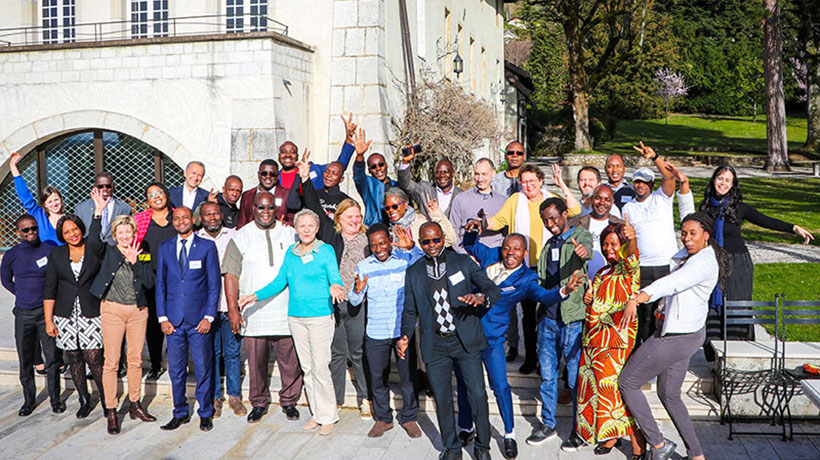News
The first edition of Epicourse, advanced course on epidemiology in complex emergencies, was a success

The new advanced course, designed by the Mérieux Foundation and Epiconcept, brought together 22 French-speaking epidemiologists from 12 countries for five days at Les Pensières Center for Global Health in Annecy (France) to strengthen surveillance and response to epidemics using a One Health approach.
How do we define public health priorities in a complex emergency situation, such as after an earthquake? How to identify contact cases during an Ebola outbreak? What are the key elements of a One Health response plan during a cholera outbreak?
For five days, Epicourse participants took part in roundtables, debates, lectures and group workshops to be able to contribute to a multidisciplinary and international response to complex emergencies in the field.
The course highlighted the importance of surveillance and associated alert systems, identifying key players and their role in responding to an outbreak to ensure control of emerging and re-emerging infectious diseases.
The course also included training on the role of crisis communication, community mobilization, research, and the need for interdisciplinary approaches.
The different sessions were led by a faculty composed of French-speaking experts from private and public institutions such as Epiconcept, Epicentre, Médecins sans Frontières (MSF), VetAgro Sup, the World Health Organization (WHO), the Vaccine Alliance (GAVI), Institut National de Recherche Biomedicale (INRB) from the Democratic Republic of Congo, Cheikh Anta Diop University in Dakar, Senegal, the West African Health Organization (WAHO), Nazi Boni University in Burkina Faso, the Mérieux Foundation, and the Hospices Civils de Lyon (HCL).
The course evaluation showed an average satisfaction rate of 97%, for the relevance of the topics covered, the quality of the presentations and the training materials. The positive feedback and the continued need to train French-speaking epidemiologists for an ever more effective surveillance and response to epidemics, makes it possible to consider a second edition of the course.
